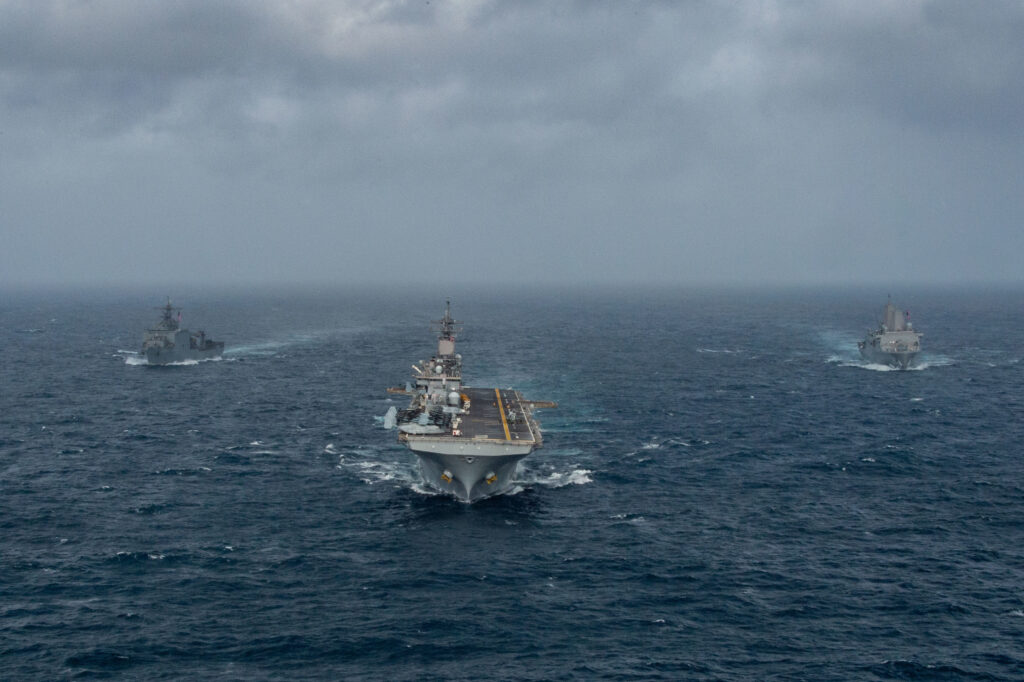 Jinchao Wei was stationed on the USS Sussex when he agreed to sell Navy secrets to China. US Navy photo by Mass Communication Specialist 2nd Class Brett McMinoway
Jinchao Wei was stationed on the USS Sussex when he agreed to sell Navy secrets to China. US Navy photo by Mass Communication Specialist 2nd Class Brett McMinoway
A US Navy sailor has been convicted of espionage after agreeing to sell Navy secrets to a Chinese intelligence officer for $12,000.
Jinchao Wei, also known as Patrick Wei, was stationed at Naval Base San Diego when he began passing photos, videos, and documents concerning Navy ships and their systems to China in February 2022. He was charged in August 2023.
After a five-day trial and one day of deliberation, the jury convicted Wei of six counts, including espionage; conspiracy to commit espionage; and unlawful export of, and conspiracy to export, technical technical data related to defense articles. Wei is scheduled to be sentenced on Dec. 1.
Wei was a machinist’s mate for the amphibious assault ship USS Essex. He also held a US security clearance and had access to sensitive national defense information about the ship’s various systems.
Wei was born in China and was in the process of applying for U.S. citizenship. In early conversations with his Chinese contact, Wei said that providing information would be considered spying and would impact his application. Regardless, within weeks, he was providing information to China.
“The defendant, who took an oath to protect our nation and was entrusted with a security clearance as a petty officer in the United States Navy, sold out his country for $12,000,” said Assistant Attorney General for National Security John A. Eisenberg in a statement. “He violated his oath, betrayed his uniform and fellow sailors, and turned his back on his adopted nation for money.”
At trial, evidence presented showed that Wei was approached in February 2022 via social media by someone who claimed to be a naval enthusiast. In reality, the individual was a Chinese intelligence officer.
Between February 2022 and his arrest in August 2023, as their relationship developed, Wei, at the request of the officer, sent extensive information about the Essex, including photographs, videos, and information about its weapons. He also sent detailed information about other U.S. Navy ships that he took from restricted U.S. Navy computer systems. In exchange for this information, the intelligence officer paid Wei more than $12,000 over 18 months.
During Wei’s trial, prosecutors presented as evidence communications between Wei and the Chinese intelligence officer, whose identity is known but was not revealed, that showed the efforts they made to cover their tracks.
In addition to the two espionage charges, Wei was convicted of four counts of conspiring to violate and violating the Arms Export Control Act. That law prohibits individuals from willfully exporting technical data related to a defense article without a license from the Department of State.
Assistant US Attorney John Parmley for the Southern District of California and Trial Attorney Adam Barry of the National Security Division’s Counterintelligence and Export Control Section prosecuted the case.
Another sailor, Wenheng (Thomas) Zhao, was charged with espionage at the same time as Wei. He was sentenced to 27 months in prison in January 2024.